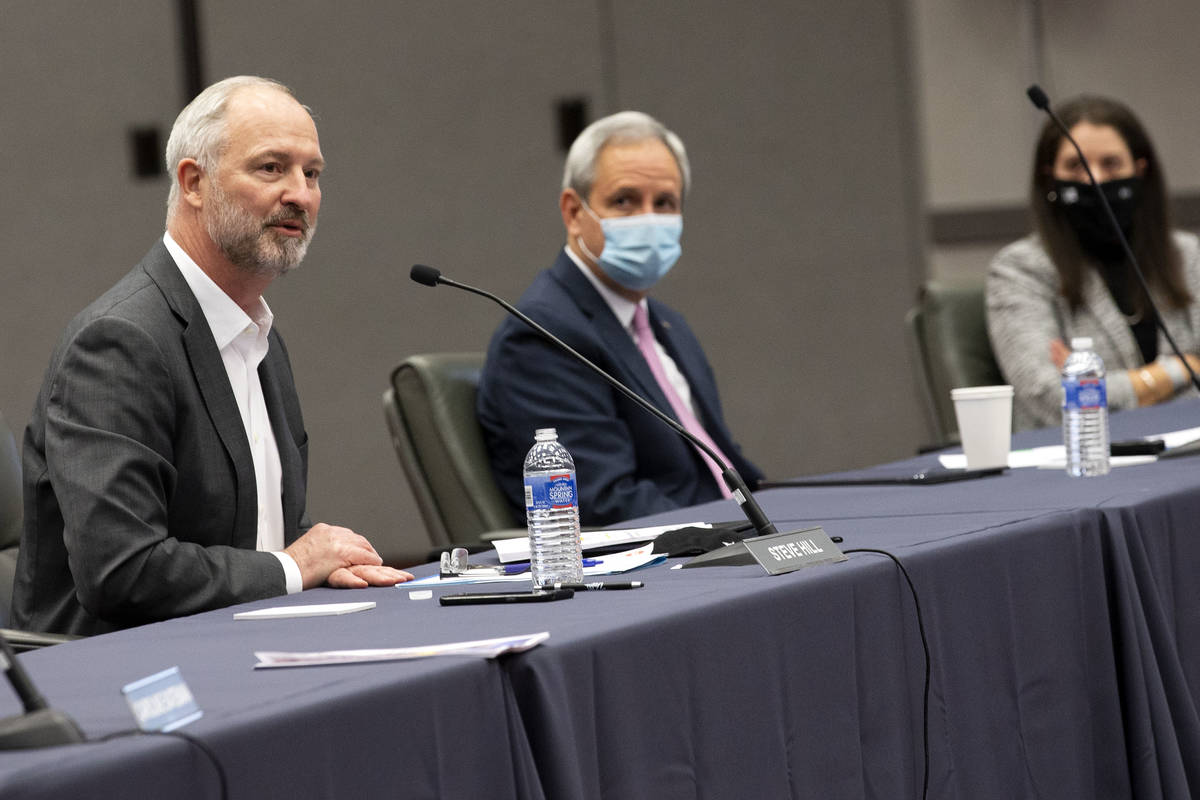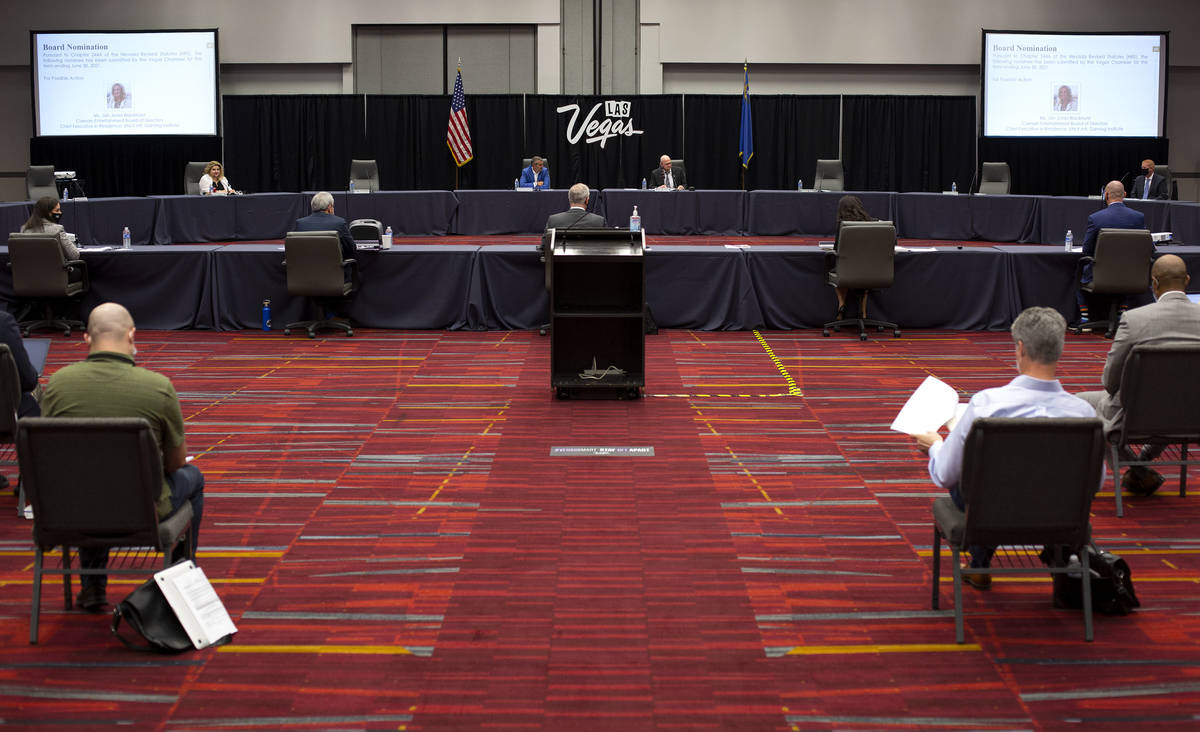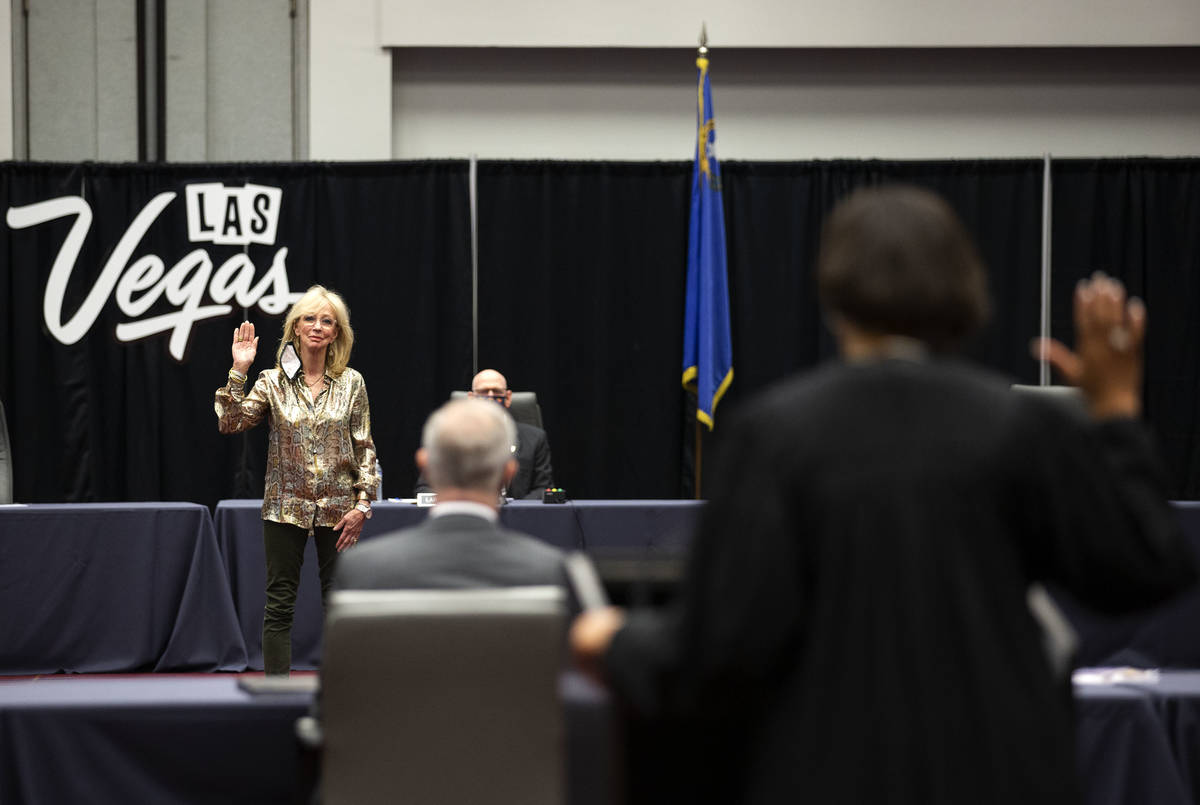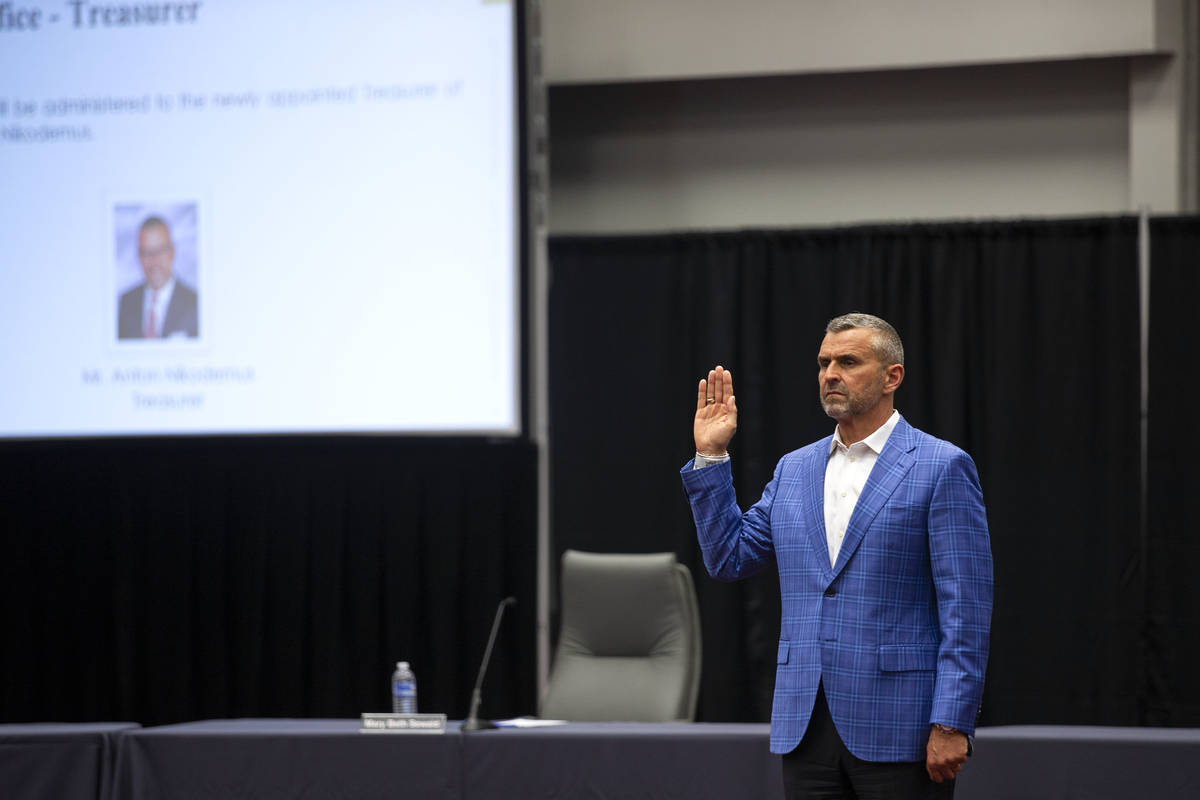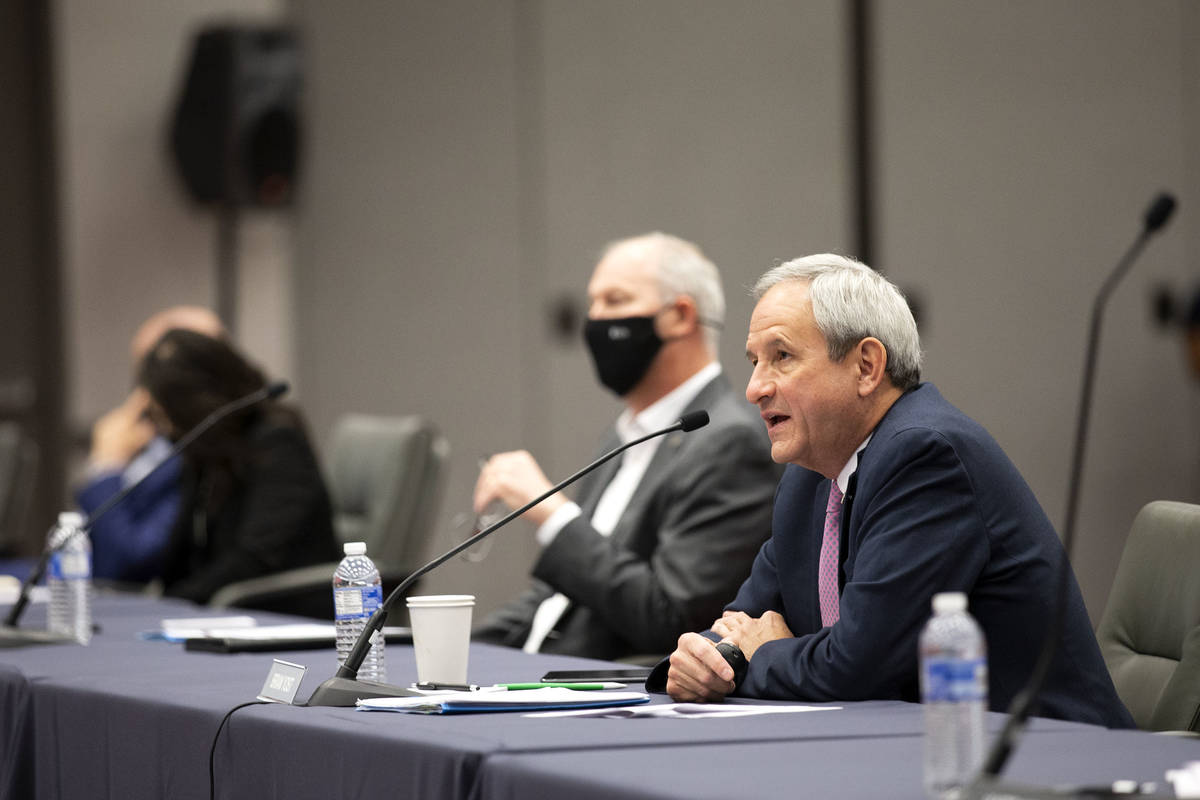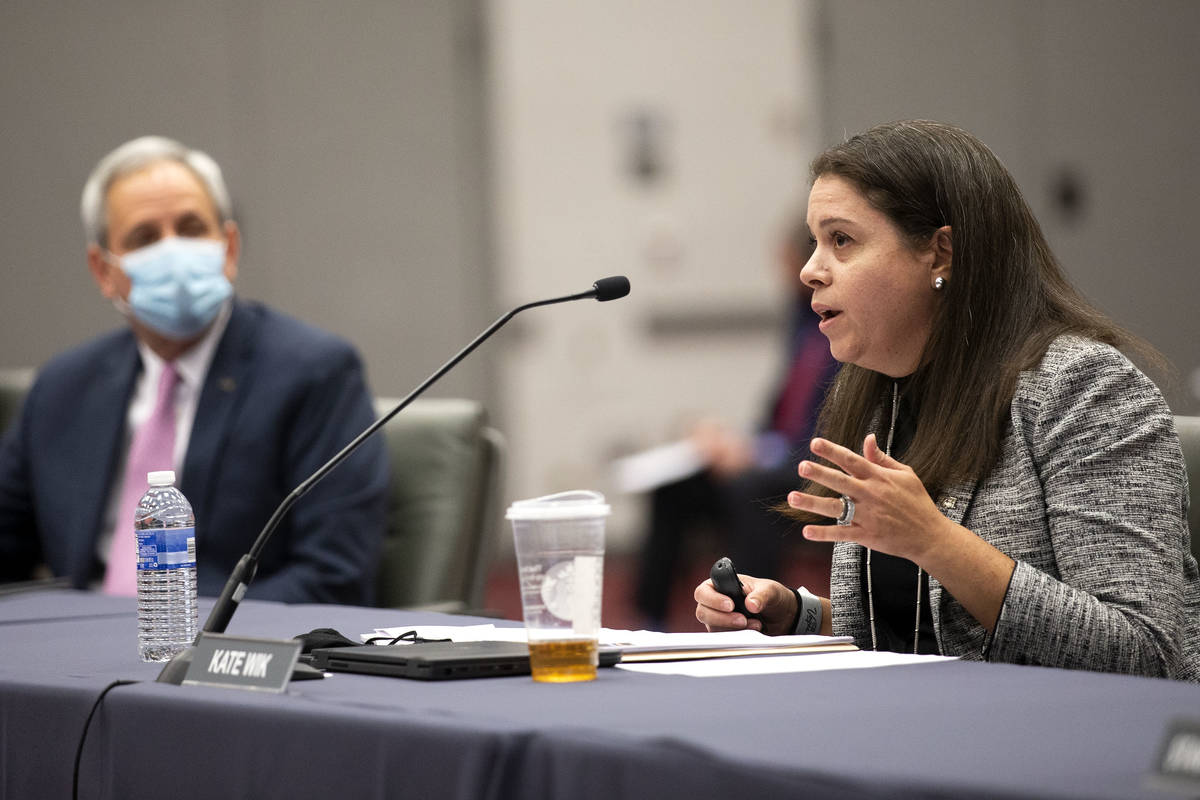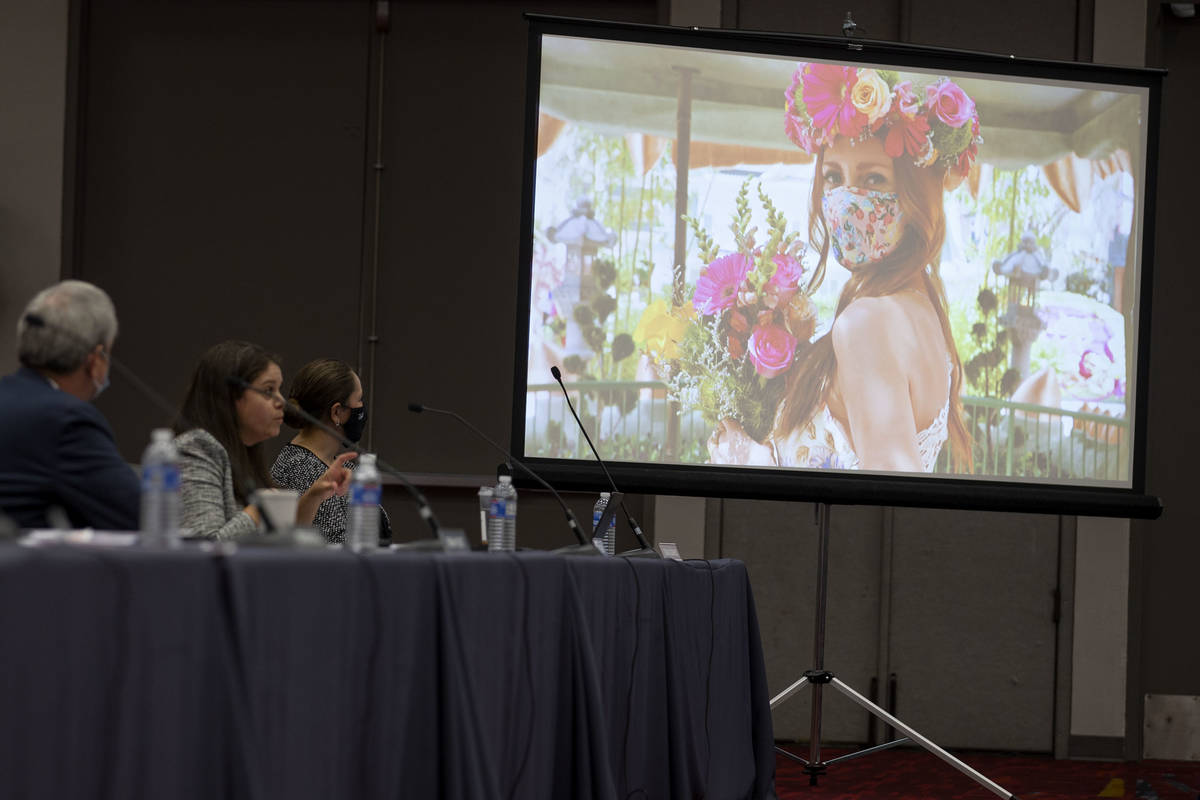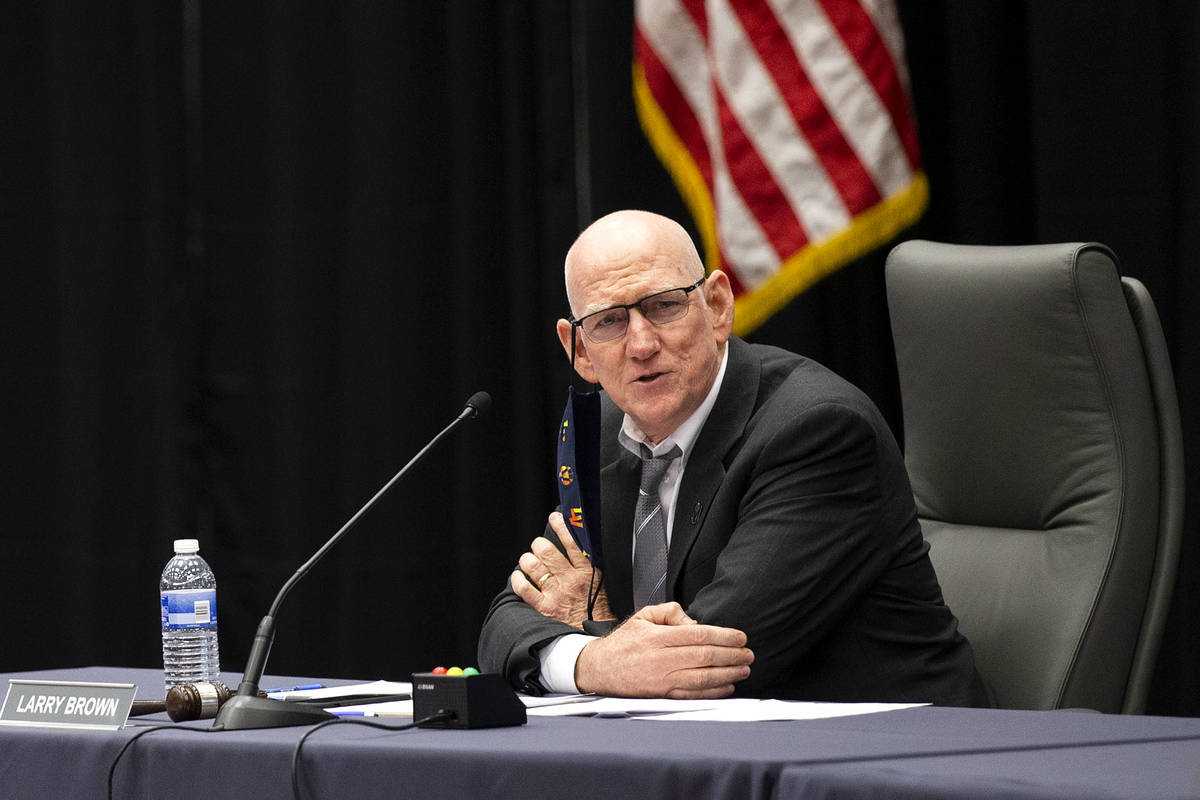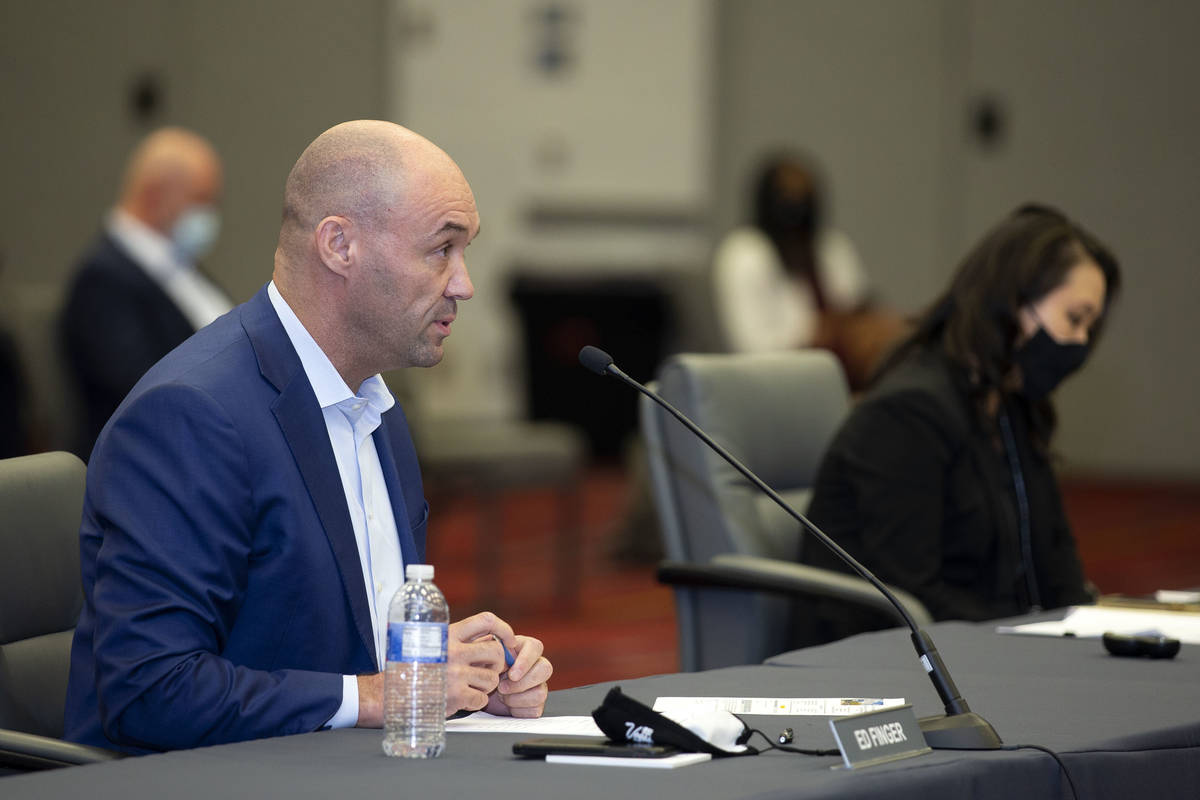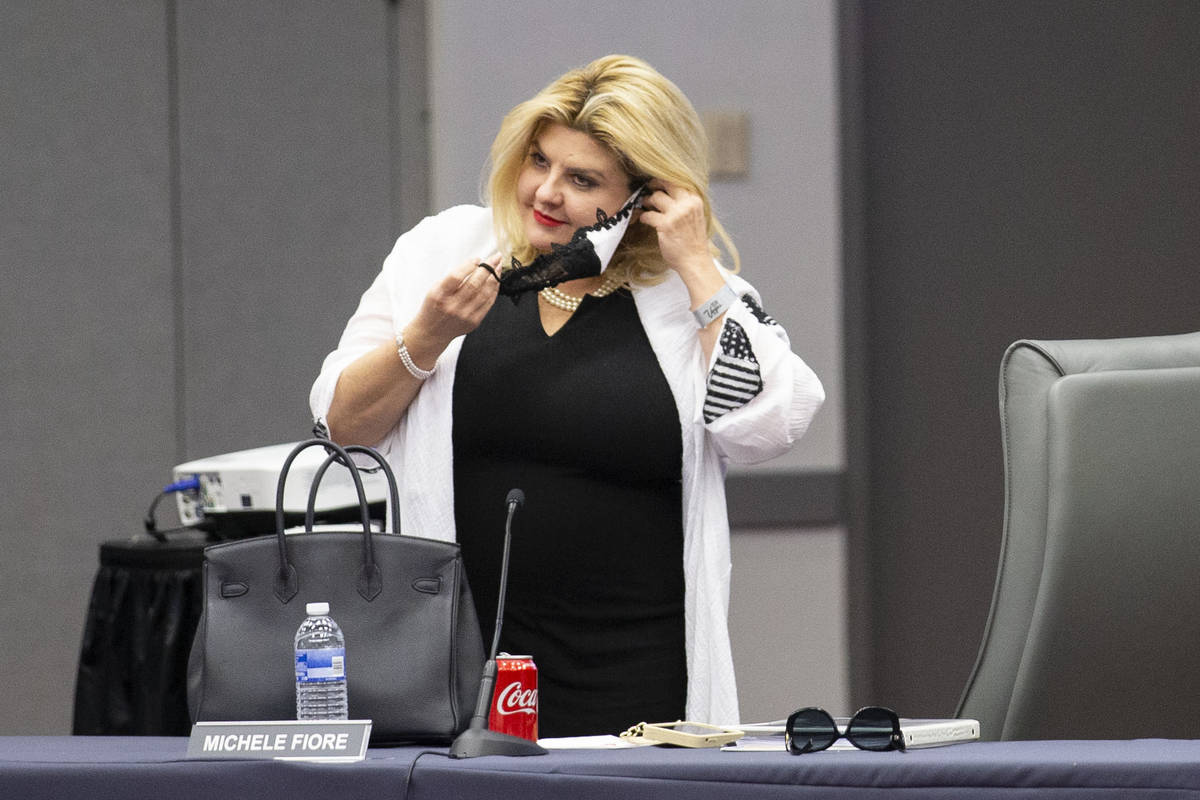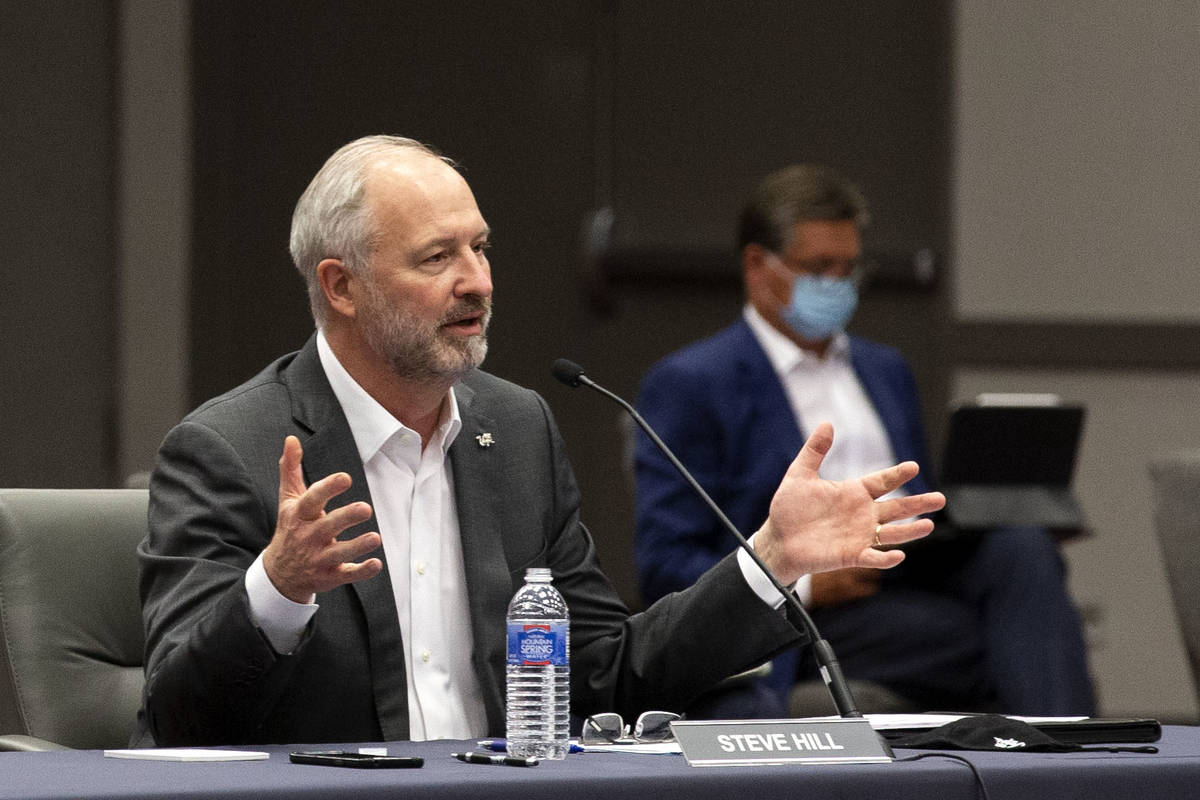Las Vegas Monorail deal approved by LVCVA board
The Las Vegas Convention and Visitors Authority will acquire the Las Vegas Monorail system, but how long it will operate the 3.9-mile electric transit system is another question.
The LVCVA’s board of directors approved the $24.26 million acquisition in a series of three 12-1 votes with Las Vegas Mayor Carolyn Goodman voting against it in each case.
Tuesday’s votes were the first step toward operating the system, which has been dormant since March because of the coronavirus pandemic.
LVCVA President and CEO Steve Hill told the board the system could be obsolete in eight to 10 years because the manufacturer of the monorail train sets no longer makes the cars.
But that timeline should provide an opportunity to figure out what happens next for mass transportation in the city. Mass transportation has been decimated in Las Vegas and other cities in the era of ride-hailing. The Regional Transportation Commission’s most profitable bus route, on the Strip, has become a money loser. The Las Vegas taxi industry has seen a dramatic decline in ridership, thanks to companies such as Uber and Lyft.
Purchasing the monorail gives the LVCVA a key asset: control over a noncompete agreement that would prohibit a competitor from establishing itself in the resort corridor on the east side of Las Vegas Boulevard.
That could be Elon Musk’s The Boring Co., which later this month will start testing its first underground transit system at the Las Vegas Convention Center. It uses vehicles on Tesla chassis in self-drive mode speeding through tunnels. Or, it could be the repurposing of the monorail track with some new form of transportation.
No extension, new station
As it stands, Hill said the LVCVA has no plans to build a new station near the Sands Expo and Convention Center and the MSG Sphere at The Venetian nor a milelong extension from MGM Grand to Mandalay Bay and Allegiant Stadium.
The LVCVA has said that it would contract for the management and operation of the monorail after the closing of the purchase. That agreement would come to the board at a future meeting. It’s unclear whether Las Vegas Monorail Co. President Curtis Myles or other staff members would be involved with the system once the deal closes.
The monorail has a workforce of about 120 employees but that has been reduced to about 15 with furloughs during the pandemic.
Myles, who attended the LVCVA board meeting, said his attorneys have advised him not to comment on his status or that of other employees until the monorail company files for Chapter 11 bankruptcy protection.
‘Prepackaged bankruptcy’
The LVCVA would collaborate on the filing in what is commonly known as a “prepackaged bankruptcy.”
Earlier Tuesday, Hill appeared before the Clark County Commission to win permission for the LVCVA to take over the monorail’s franchise agreement with the county.
The commission unanimously approved the transfer, clearing the way for the board’s afternoon meeting.
Ridership for the monorail has fallen to around 5 million a year, but the system has been most useful and successful during major conventions in the city.
Hill told commissioners Tuesday that convention customers asked the LVCVA to keep the monorail operating because of its convenience.
Hill said the LVCVA could reduce the system’s operating costs by housing the company’s corporate offices — it currently rents space — and no longer paying the monorail board of directors.
“It’s the right thing to do at the right time,” Commissioner Larry Brown said of the deal, noting that if a private operator wanted to step forward to run the system, it already would have done so.
New alternatives
“It opens up a whole lot of alternatives,” Commissioner Jim Gibson said, noting that with a plan by The Boring Co. to drill a tunnel network beneath the city, there could be other transit options that haven’t been explored.
The franchise transfer also turns over to the LVCVA the responsibility to decommission the monorail system should it fail. A $6.76 million decommissioning fund the county holds will be transferred to the LVCVA and would be used toward paying for the transaction. But the LVCVA would keep the responsibility of tearing the track down should the need occur.
Hill said the LVCVA has received estimates that removing track from the city’s rights-of-way would cost an estimated $11 million.
The LVCVA plans to use a $95 million Las Vegas Convention Center District fund initially designated for the renovation of four exhibition halls in 2021 and 2022 to pay for the monorail and then replenish that fund with $21.5 million in new debt and the decommissioning fund. The renovation plans were put off indefinitely when the pandemic set in.
The LVCVA has about $1.8 billion in debt, and new debt would be increased by just more than 1 percent, Hill said.
After the monorail company and the LVCVA enter U.S. Bankruptcy Court, the $24.26 million in purchase proceeds would be divided among creditors.
The Review-Journal is owned by the family of Las Vegas Sands Corp. Chairman and CEO Sheldon Adelson. Las Vegas Sands operates The Venetian, Palazzo and the Sands Expo and Convention Center in Las Vegas.
Contact Richard N. Velotta at rvelotta@reviewjournal.com or 702-477-3893. Follow @RickVelotta on Twitter.
Blackhurst joins LVCVA board
Jan Jones Blackhurst, a member of Caesars Entertainment Corp.'s board of directors and chief executive in residence for UNLV's International Gaming Institute, was appointed Tuesday to the Las Vegas Convention and Visitors Authority board of directors.
She'll complete a term of office for former Caesars executive Tom Jenkin, appointed by the Vegas Chamber, that concludes June 30.
Blackhurst is returning to the board after serving while mayor of Las Vegas from 1991-99.
The board also appointed MGM Resorts International executive Anton Nikodimus as its treasurer.



